History Show
Scheii Brasovului in central Romania hosted the first education institution in the Romanian space, back in 1495.

Răzvan Emilescu, 13.07.2015, 13:12
Scheii Brasovului was the burgh
that was fated to host the first education institution in the Romanian space,
back in 1495. The building was restored in the 18th century, and
today is home to the ‘First Romanian School’ museum. Father Vasile Oltean
talked to us about the history of this monument:
Across history, we can see
that the church sheltering this area had as patrons 32 rulers and noblemen of
Wallachia and Moldavia. Thanks to this fact, confirmed by 80 royal edicts,
today hosted by this museum, a Romanian cultural and spiritual center was
created here, materialized in the first Romanian school. History tells us that
Romanian education dates back to the 16th century, but his is
contradicted by the chronicle of the church, which says clearly that, the holy
church and school were erected in 1495. How can we not believe what the
chronicle says, considering that in 1932, Aurelia Muresan published the
documents of the construction in 1495. This is documentation capable of proving
the truth. In the meantime, we find this in the text of the papal bull issued
by Boniface the 9th, of December 13, 1392, in which the pope in Rome
spoke of the schismatic church in Schei, where pseudo-teachers taught.
Genuine cultural centers
flourished around the School of Schei, being representative not only for the
Barsa Land but for the entire Romanian region. The books by deacon Coresi were
printed here in Romanian for the first time. Dimitrie Eustatievici, a local
from Brasov, wrote here the first Romanian grammar back in 1757. Father Vasile
Oltean, who is also a teacher, told us more about the tumultuous history of the
first Romanian school in Scheii Brasovului.
I am thinking of the year 1981,
when we first discovered the 700 pages school manuscript from the 11th
– 12th centuries. The lesson on virtue alone has 250 pages. Such a big volume of major importance and
with such a rich content is evidence that there was a high-level education system
back then. I was trying to imagine the profile of the student who was supposed
to study that manual. We have 15 storerooms and another three rooms that are
still unexplored. We have 6,000 old books and 30 thousand documents. Until 1962
all these had been hidden in the steeple. Nobody knew about that, but in 1962,
an old man, professor Ioan Colan, went to the tower to take a board. He pulled
the board out of the wall and made such a break into it that he was able to see
the room where these documents were hidden. Ioan Colan served an 8-year prison
sentence for keeping Saguna’s bible in his private book collection; he didn’t
accept to burn it so he was declared a thief and enemy of the people. After his
jail years he got a job here at the church as unskilled carpenter, in spite of
having three bachelor degrees and three PhDs.
In 1949, along with Ana Pauker’s
decree, under which all assets in the church patrimony were to be burnt out,
the documents belonging to the School in Schei were also to be destroyed. A priest
had hidden them in the walls of the church tower, to protect them from the
imminent destruction ordered by the communist authorities. They stayed there
until 1962, when somebody found them. Dean Vasile Cuman started right away the
organization of the Schei museum. Here is with details father Vasile Oltean
once more .
If we
have a 16th century school-book, it means that there was definitely a school
back then. We also found a class book, probably the oldest in the country,
dating back to 1683. The school had just one teacher, Ioan Duma, who had 110
pupils. The oldest of them was 20 years old. He would come to school for 3
months, then he would become a ‘gociman’. The word comes from the German
Gottsmann, meaning ‘God’s man’. It was in fact the administrator of the
settlement and of the church. Administrators back then had a big power, they
could even sack the priest, if he wasn’t fit for the job. If he stayed 6 months
in school, he would become a teacher and a deacon. He would sing in church and
take care of the school. If he stayed 9 months, he would become a priest. In
order to be allowed in school, a pupil was supposed to bring a bucket of wheat,
a cart full of wood and money, four Florins, as the class book shows. But it
was not the pupil or the father who would pay, it was the responsibility of the
entire village. The fact that there were 110 pupils shows that children came
from the entire Barsa Land, not just locals. The first girl was only registered
in 1846.
In the Schei School’s
collection there is also the first book in Slavic, written in 1491, printed
under order by the ruler of Moldavia, Stephen the Great. Sweipold Fiol was the
one who, without knowing it, printed the first orthodox book, although he was
in the center of the Catholic world, in Krakow. The 6 thousand old books and
the 30 thousand documents in Brasov include genuine treasures of universal
culture.






























